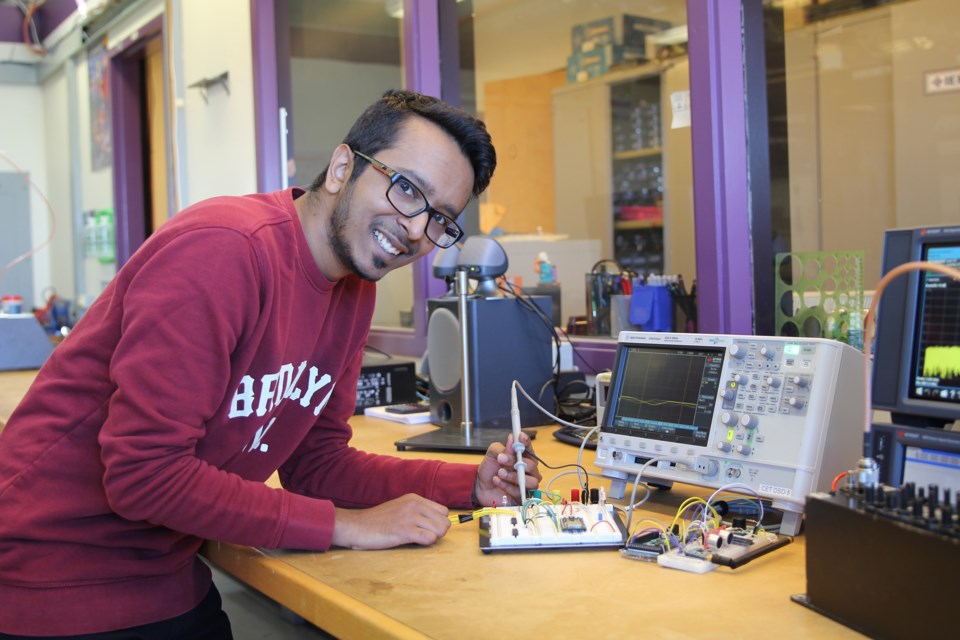Assiniboine Community College will soon be able to offer an enhanced fibre-optic training and education experience inside the classroom, thanks to a $15,000 donation from Farm Credit Canada (FCC).
“As the agriculture industry evolves toward an increased focus on technology and precision agriculture, so comes an increased demand for digital agriculture knowledge and training,” says Chris Budiwski, Chair of Agriculture & Environment at Assiniboine Community College.
The new technology infrastructure will be used primarily by students in the college’s Communications Engineering Technology (CET) program. Graduates of the CET program are increasingly benefitting from hands-on technical training and exposure to agriculture and agricultural systems during their time at college.
“FCC is very interested in supporting digital ag, because we feel it benefits Canadian producers and agriculture as a whole,” said Diana Laturnus, Manager, Special Projects at FCC. “I think there’s a lot of technologies out there and it’s making sense of how they operate and their return on investment and I think it’s important for producers to get that kind of information.”
Digital agriculture systems provide more reliable and faster data transmission, which is crucial to providing precise digital information and solutions on agriculture inputs and variables, like weeds, spraying, sunlight and feed. Much of this digital agriculture in action relies on fibre optic technology.
“With the move of many industries, including agriculture, to focusing more and more on data, the need for faster and more robust data transmission is reliant on systems like fibre optics,” said Budiwski.
Fibre optics provide the infrastructure connecting wireless communication systems being used in the fields for voice, data and sensor technology and can provide networks with increased broadband connectivity in rural areas and farm sites.
This donation from FCC brings digital agriculture training to a new and necessary hands-on level, where theory learning had previously been the only route.
“With a combination of conceptual and applied learning, I think you set students up for success as we move forward and technologies continue to evolve and change,” said Wilco Van Meijl, Brandon District Director with FCC. “This is what our producers, customers and the industry are going to have to have a grasp on as we move forward in order to stay competitive.”
“CET is essentially a program based on wireless communication and this transfers to agriculture applications very well,” said Budiwski. “As the industry moves toward more digital ag, precision ag, machine learning and artificial intelligence, the need for designers and technicians of this digital infrastructure comes with this technological shift.”
This generous donation from FCC will allow Assiniboine to keep ahead of this digital shift and the labour needs that accompany it.
“There is a lot riding on the adoption of digital ag technology. We need to be quick to identify existing technology gaps and be agile in innovating and anticipating the new agritech that will drive success in the Canadian ag and food sectors.” said Laturnus.
Van Meijl agreed. “As we all know, technology is always changing, so we commend Assiniboine for being on the front line of that,” he said. “It’s an easy partnership for us to get involved in. We can see not only graduates of Assiniboine benefiting from this, we see our customers and Canadian ag as a whole benefiting.”
Budiwski sees FCC’s contribution as a significant beginning to help grow the training possibilities surrounding digital agriculture.
“This equipment will provide more hands on and experiential learning opportunities for students, aiding them in applying the theory aspects of communications technologies to real-time, real-life scenarios,” he said. “These real-world examples will showcase practical rural and agricultural applications in Manitoba.”




